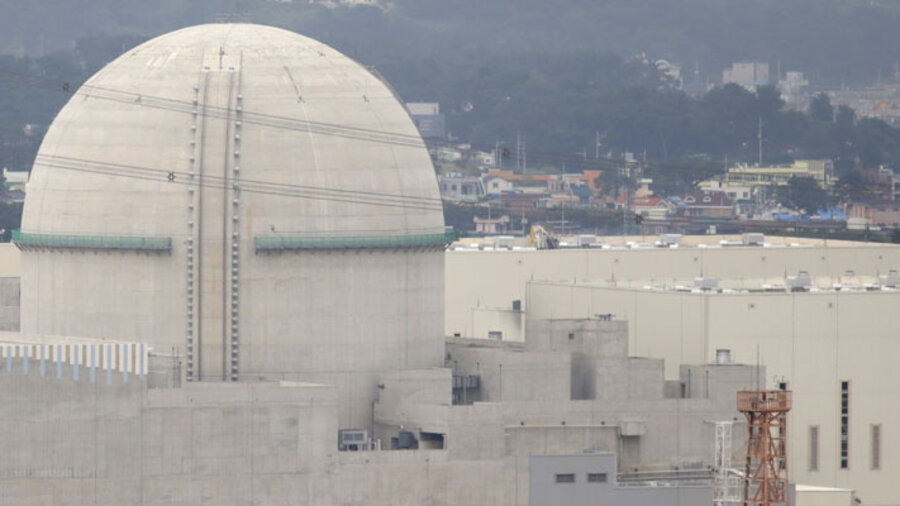Under terms of the 1994 Geneva framework agreement between North Korea and the US, the North was to have received two nuclear energy reactors. South Korea’s Korea Electric Power Corporation agreed to build them at a cost of $4 billion at a site on the North Korean east coast, while Japan pledged $1 billion to the program to help cover the costs. For its part, the US shipped 500,000 tons of heavy fuel oil a year, worth $50 million, to North Korea for power generation. The agreement broke down in 2002 after it was revealed that even though North Korea had kept its promise to stop producing plutonium for warheads, it had started a new program to develop warheads with enriched uranium. North Korea is now working on a 200-megawatt facility for producing nuclear energy but faces severe problems due to international sanctions over the North's nuclear weapon program.
 Mark Sappenfield
Mark Sappenfield
Dear Reader,
About a year ago, I happened upon this statement about the Monitor in the Harvard Business Review – under the charming heading of “do things that don’t interest you”:
“Many things that end up” being meaningful, writes social scientist Joseph Grenny, “have come from conference workshops, articles, or online videos that began as a chore and ended with an insight. My work in Kenya, for example, was heavily influenced by a Christian Science Monitor article I had forced myself to read 10 years earlier. Sometimes, we call things ‘boring’ simply because they lie outside the box we are currently in.”
If you were to come up with a punchline to a joke about the Monitor, that would probably be it. We’re seen as being global, fair, insightful, and perhaps a bit too earnest. We’re the bran muffin of journalism.
But you know what? We change lives. And I’m going to argue that we change lives precisely because we force open that too-small box that most human beings think they live in.
The Monitor is a peculiar little publication that’s hard for the world to figure out. We’re run by a church, but we’re not only for church members and we’re not about converting people. We’re known as being fair even as the world becomes as polarized as at any time since the newspaper’s founding in 1908.
We have a mission beyond circulation, we want to bridge divides. We’re about kicking down the door of thought everywhere and saying, “You are bigger and more capable than you realize. And we can prove it.”
If you’re looking for bran muffin journalism, you can subscribe to the Monitor for $15. You’ll get the Monitor Weekly magazine, the Monitor Daily email, and unlimited access to CSMonitor.com.






